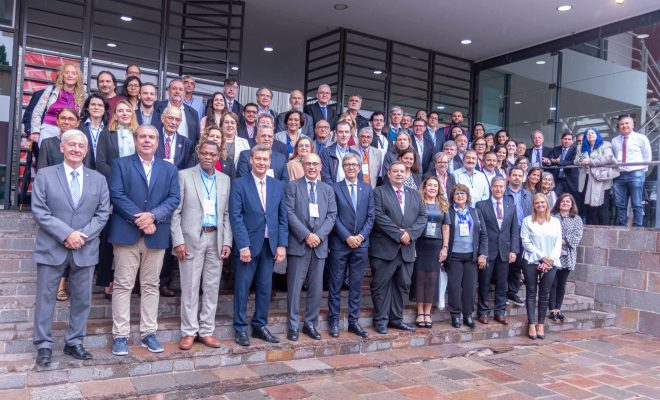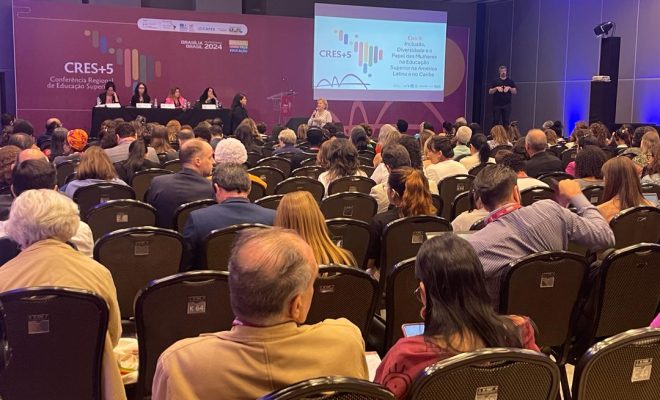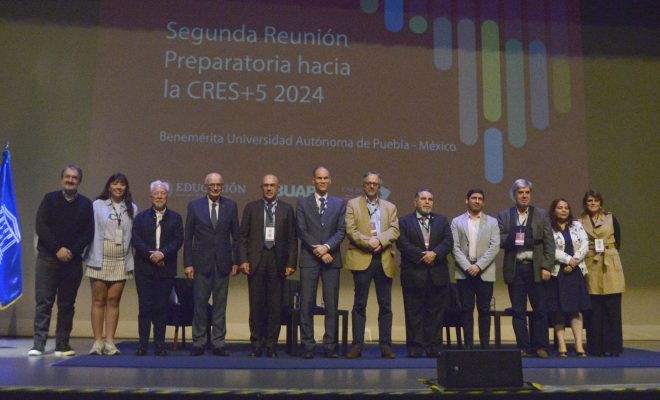CRES+5 public consultation addresses gender equality

This Thursday, January 18, Axis 9 of the follow-up event to the Regional Conference on Higher Education in Latin America and the Caribbean 2018 (CRES+5) will hold its second public consultation, this time focusing on gender equality. Axis 9 deals with “Inclusion, diversity and the role of women in higher education,” and the public consultations are preparatory to CRES+5, which will take place March 13-15, 2024 in Brasilia (DF).
The consultation will take place from 13h00 to 14h30 (Caracas time, GMT -4) and from 14h00 to 15h30 (Brasilia time, GMT -3). Interpretation into Spanish, English and French will be provided. Registrations can be made through the link https://unesco-org.zoom.us/meeting/register/tZckdu-rqTsjHNZ72ciP6L7ePcDYek_l2Zem#/registration.
Speakers include Nilma Lino Gomes, former Minister of Women, Racial Equality and Human Rights of Brazil; Claudya Parize, Vice President for Social Responsibility at the University of the West Indies, Guadeloupe and Martinique; and Halimah DeShong, Director of the Institute of Gender and Development Studies at the University of the West Indies, Cave Hill, Barbados, in the Caribbean. The debate will be moderated by Sandra Almeida, rector of the Federal University of Minas Gerais (UFMG) in Brazil, and Myriam Moïse, associate professor at the University of the West Indies and secretary general of the Universities of the Caribbean.
The proposals and priorities identified in the consultation will be part of the final document generated by Axis 9, in addition to contributing to the construction of the Final Declaration of CRES+5. This will be approved at the end of the Conference, hosted and co-organized by Brazil in collaboration with the UNESCO International Institute for Higher Education in Latin America and the Caribbean (IESALC).
Public Consultations
Initiated in September 2023 and scheduled to end in January this year, the public consultations are conducted through the Zoom platform and are open to the entire community upon registration. With the support of UNESCO IESALC, the Ministry of Education (MEC) – through the Secretariat of Higher Education (Sesu) – and the Coordination for the Improvement of Higher Education Personnel (Capes), the objective is to enrich the debate and contributions for the consensual construction of CRES+5, increasing its representativeness and relevance for all higher education stakeholders in the region.
The consultations, held by each Working Group (WG) of the 12 Thematic Axes of CRES+5, aim to discuss and gather information on the issues addressed by the respective axes. The meetings are attended by experts and coordinated by the consultants of each WG. The contributions of the participants in each meeting are systematized by the consultants, who are responsible for preparing the base document for each CRES+5 thematic axis.
CRES+5
One of the commitments made at the III Regional Conference on Higher Education in Latin America and the Caribbean (CRES 2018), held in Córdoba, Argentina, was to hold a follow-up meeting five years later, called CRES+5. The proposal is to promote a participatory process to highlight progress made, pending challenges and emerging issues, particularly in the post-Covid-19 pandemic phase. At CRES 2018, a declaration was approved and an ambitious work plan was established for the period 2018-2028.
The action plan approved at CRES 2018 established guidelines for regional discussions, such as: the strategic role of higher education in the sustainable development of Latin America and the Caribbean; higher education, cultural diversity, interculturality, internationalization and regional integration in Latin America; scientific and technological research and innovation as an engine of human, social and economic development for Latin America and the Caribbean; and teacher training.
The first preparatory meeting for CRES+5 – held in March 2023 in Córdoba, Argentina – defined and added, in addition to the seven thematic axes around which CRES 2018 revolved, new axes to articulate and guide regional debates on higher education in Latin America and the Caribbean. To coordinate the work of each thematic axis, a WG made up of experts was formed. More information on the thematic axes here.
Social Communication Office of the MEC, with information from UNESCO IESALC








